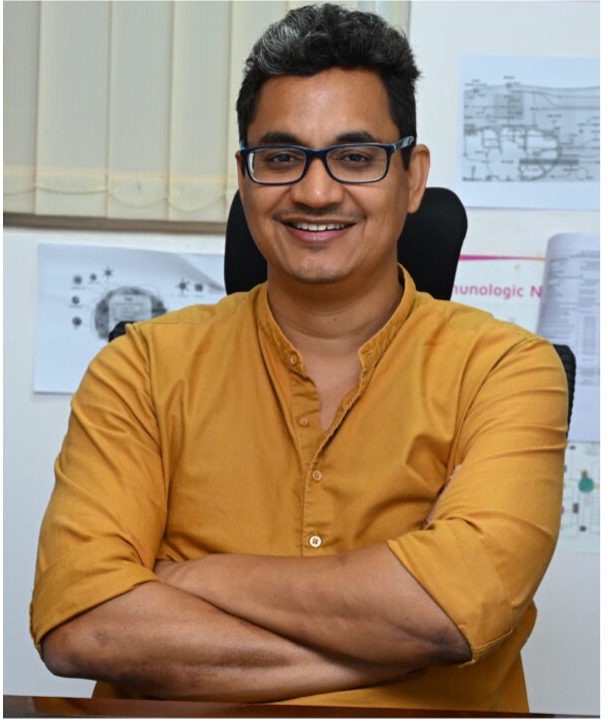Profile
Current position: Scientist-F and group leader of Immunogenomics & Systems Biology laboratory at ILS, Bhubaneswar Research Experience: Completed PhD in Biotechnology from IGIB Delhi in 2007 followed by first Postdoctoral Fellow as SIMO SITRA and Academy of Finland Fellow at Molecular Immunology group, Turku, Finland. Dr. Raghav then worked as Scientist from 2009-2013 at Laboratory of Systems Biology at EPFL Lausanne, Switzerland. After staying for almost 7 years outside India he joined ILS, Bhubaneswar as Scientist-D and Ramalingaswami Fellow in December 2013.
Current Focus Areas
Understanding disease predisposition in the Odisha tribal population
Synergy and Antagonism in immune responses in dendritic cells
Immunometabolic profiling of SLE and RA patients
Role of NCoR1 mediated immune-metabolic perturbations in Mycobacterium tuberculosis pathogenesis
Selected Publications
Sen K, Biswas VK, Ghosh A, Prusty S, Nayak SP, Podder S, Gupta B, Raghav SK. NCoR1: a key player regulating mycobacterium tuberculosis pathogenesis. Autophagy 2023 Nov 12:1-2.
Biswas VK, Sen K, Ahad A, Jha A, Ghosh A, Prusty S, Swain M, Kumar D, Gupta Bhawna, Raghav SK. NCoR1 controls Mycobacterium tuberculosis growth in myeloid cells by regulating AMPK-mTOR-TFEB axis. PLoS Biology, 2023 Aug 17;21(8):e3002231.
Sen K, Pati R, Jha A, Mishra GP, Prusty S, Chaudhary S, Swetalika S, Podder S, Sen A, Swain M, Nanda RK, Raghav SK. NCoR1 controls immune tolerance in conventional dendritic cells by fine-tuning glycolysis and fatty acid oxidation. Redox Biol. 2022, 59:102575.
Jha A, Ahad A, Mishra GP, Sen K, Sen A, Smita S, Minz AP, Biswas VK, Tripathy A, Senapati S, Gupta B, Acha-Orbea H, Raghav SK. SMRT and NCoR1 fine-tune inflammatory versus tolerogenic balance in dendritic cells by differentially regulating STAT3 signaling. Front Immunol. 2022, September 22.
Mishra GP, Jha A, Ahad A, Sen K, Sen A, Podder S, Prusty S, Biswas VK, Gupta B, Raghav SK*. Epigenomics of conventional type-I dendritic cells depicted preferential control of TLR9 versus TLR3 response by NCoR1 through differential IRF3 activation. Cell Mol Life Sci. 2022, 79: 429.
